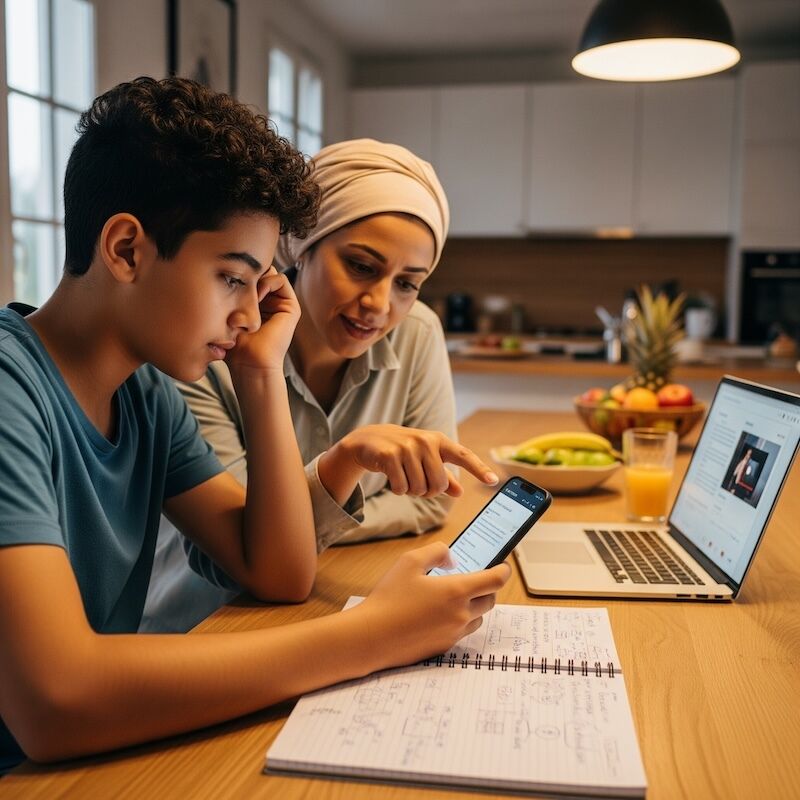These days, when our teens scroll through Instagram or TikTok, it’s like sending them into a digital bazaar—loud, fast, full of shiny distractions, and flavored with misinformation. Yet, surprise: while only 39% of teens in the U.S. receive any formal media literacy training in school, 94% say it should be mandatory.
That gap is a flashing billboard for parents. If teens know they’re missing a critical tool, it means they’re already thirsty for truth—and we’re in a position to hydrate that thirst.
First, here’s what media literacy training looks like. Programs like Checkology and EmpowerMe teach practical frameworks—like SIFT: Stop to pause, Investigate who’s behind it, Find better sources, Trace claims to their origin. These aren’t school assignments—they’re daily survival strategies in the news-fed world kids live in.
In Egypt, where online influencers deliver everything from beauty trends to political rants, it’s vital. If our teens absorb sensational headlines without questioning, they’re shaping opinions on shaky ground. Misinformation can fuel fear, intolerance, or bad financial decisions—like thinking an influencer-paid pump is investment advice.
So what can parents do?
1. Next time your teen shares a questionable post: “Cool video. Who posted it? Check other sources?” Lead by asking questions—not accusing.
2. Make it a habit. Fact‑checking should be as normal as checking homework. Frame it: “Let’s verify before we amplify.”
3. Model it yourself. Let them see you pause on clickbait. Show them how you verify health info, travel guides, or election stats.
4. Use tools. Show them browser extensions or apps that flag unreliable sources, or teach them to reverse-image search suspicious claims.
5. Talk about intent. Not all creators are bad—but sometimes they’re paid, misinformed, or pushing agendas. Help teens see beyond likes to motivations.
This isn’t about turning teens into cynics—it’s about empowering them. When they can sift through digital noise, they feel more agency. They don’t spread fear—they ask questions. They don’t take viral trends—they take notes.
Parents, our job isn’t just to set boundaries—it’s to equip. Media literacy isn’t optional—it’s essential. Especially for Egyptian teens navigating a world where online content eclipses trusted voices. Let’s teach them to think, not just to click. Because when teens learn to question, internet noise, drama, and misinformation start losing their power—and true conversations begin.







Leave a Reply
You must be logged in to post a comment.